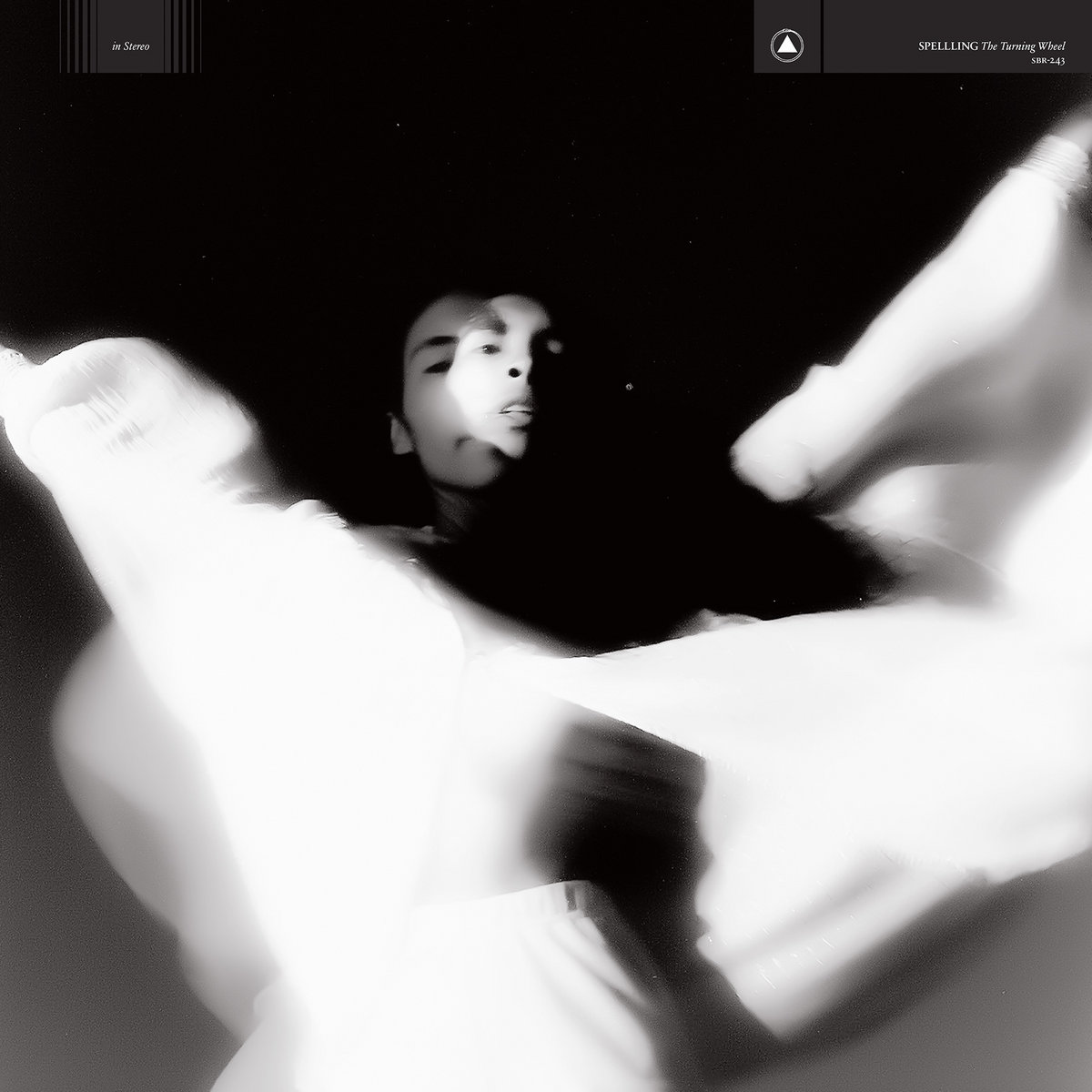National Music Reviews
SPELLLING
The Turning Wheel
Sacred Bones
Street: 06.25
SPELLLING = Tujiko Noriko + 2000s Kate Bush
Since her haunting 2017 debut, Pantheon of Me, Chrystia Cabral’s SPELLLING project has bounded further and further away from that album’s skeletal guitar experiments. Her newest, The Turning Wheel, augments the lushness found on Cabral’s 2019 standout Mazy Fly and lives freely full of grandeur and bombast. In both lyrical and musical scope, The Turning Wheel thrives off of Cabral’s individuality, not a selfishness but a love letter to understanding the messiness of your own personal and artistic desires.
Backed by varying iterations of a 31-piece orchestra, Cabral alights these synth-heavy odes to the self with brass fanfares, woodwind flourishes and a string section’s lush romanticism. The addictive thump of the title track backs one of Cabral’s clearest statements of tension: “You want to set out for the cities, turning wheel / I want to stay up on the hill,” she sings. The instrumentation lands on a nostalgic major harmony as the line tapers off in a smiling whisper, turning these declarations into less of a lament for lost love and more of a “you go your way and I’ll go mine” type of knowingness.
That iconoclasm permeates not only the lyrics on The Turning Wheel, but its musical settings as well. Here, much of the dark edge found on previous SPELLLING albums dissolves into sweetness and glittering glamour. Many of the album’s 12 tracks follow the same general pathway from big and loud toward bigger and louder, and a considerable majority conclude with some sort of grand orchestral fanfare. Even within this formula, Cabral finds room for nuance. Where lead single “Little Deer” climaxes in an exuberant revelry of horns and chant-along choruses, “Magic Act”’s doom-laden pulse carries the unabashed epicness of Lisa Reed‘s arena-ready guitar arpeggios; both “Awaken” and “Legacy” build off of shimmering acoustic guitars, but the former harnesses the steel-string ripple for a marching ode to self-worth while the latter’s organ-heavy setting feels decidedly more funeral alongside its plodding synth melodies.
Sometimes Cabral’s proggy maximalism reaches out far enough that it begins to flirt with pure goofiness, as on “The Future” or “Emperor with an Egg.” But even with its jester-like bounce, “The Future” retains the album’s more elemental preoccupations. Cabral’s singing snarls as much as it lovingly coos, tracking a relationship’s demise as a consequence of cross-temporal tension: “Close my eyes and I dream of you / But there’s that nothing I can do / Cuz I live in the future, the future / Too many years apart.” Her own assertions can contain contradictions—this portrait of herself as a time-traveling sage against the simple pastoralism found elsewhere. The Turning Wheel is always massive, but how this grandiose personality appears changes from day to day, song to song.
Before the wordless lullaby of “Sweet Talk” concludes the album, the contented piano runs of “Revolution” distill The Turning Wheel‘s expansive tendrils into a single, succinct mantra: “I’m in a permanent revolution,” Cabral sings as the backing track swells past instrumentation to incorporate the clamor of fireworks and shouting crowds. After close to an hour of cranking the lever of musical much-ness past its breaking point, Cabral’s self-determined maximalism shoots for such heights that even the 31-piece orchestra can’t offer enough propulsion. But still Cabral tells us that the shape of that precipice, that peak of self-defined extravagance, shifts as often as the weather—constantly in flux, permanently committed the ever-revolving Wheel. –Audrey Lockie
